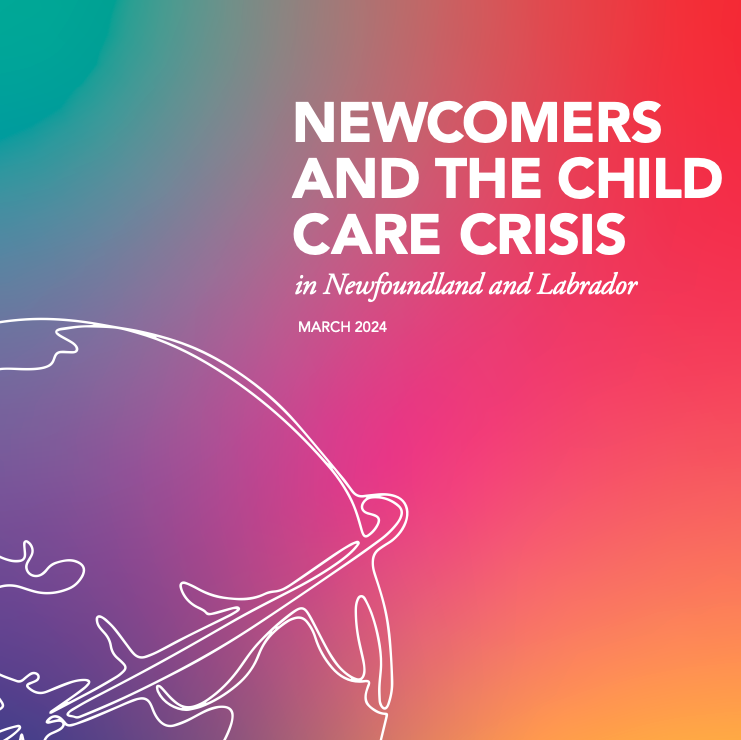April 25, 2024
Report: Newcomers and the Childcare Crisis

The Jimmy Pratt Foundation and the Multicultural Women’s Organization of NL are pleased to release a new report on the newcomer experience of the childcare crisis in Newfoundland and Labrador.
72% of young children in Newfoundland and Labrador live in childcare deserts, defined as a postal code where there are more than three children per licensed childcare space.[1] These challenges are magnified for newcomers to Newfoundland and Labrador, who face additional barriers as they navigate the childcare system. The stakes of missing out on childcare are high for newcomer children and their parents – more than 1 in 3 immigrant children in Newfoundland and Labrador live in poverty.[2] As the provincial government expands the Early Learning and Child Care system in Newfoundland and Labrador, it must do so with consideration for the experiences of immigrant families. This is an issue of migrant justice, gender equality, anti-racism, and children’s rights.
About this paper
This discussion paper was developed in partnership with staff and program participants at the Multicultural Women’s Organization of Newfoundland and Labrador (MWONL). It focuses on the experience of parents and caregivers in Newfoundland and Labrador who do not have a childcare spot.
We reviewed recent literature on Early Learning and Childcare and newcomer families in Canada. There is little research specific to childcare and newcomer families in Newfoundland and Labrador, so to provide local context to this discussion paper, we co-hosted a forum for MWONL program participants to share their experiences finding childcare since coming to the province. We provide recommendations for the provincial government based on existing literature and the experiences of MWONL participants.
[1] David Macdonald and Martha Friendly, “Not Done Yet: $10-a-Day Child Care Requires Addressing Canada’s Child Care Deserts” (Canadian Centre for Policy Alternatives, May 2023), 4.
[2] Statistics Canada, “Table 98-10-0314-01 Individual Low-Income Status by Immigrant Status and Period of Immigration: Canada, Provinces and Territories, Census Metropolitan Areas and Census Agglomerations with Parts,” October 26, 2022, https://doi.org/10.25318/9810031401-eng.